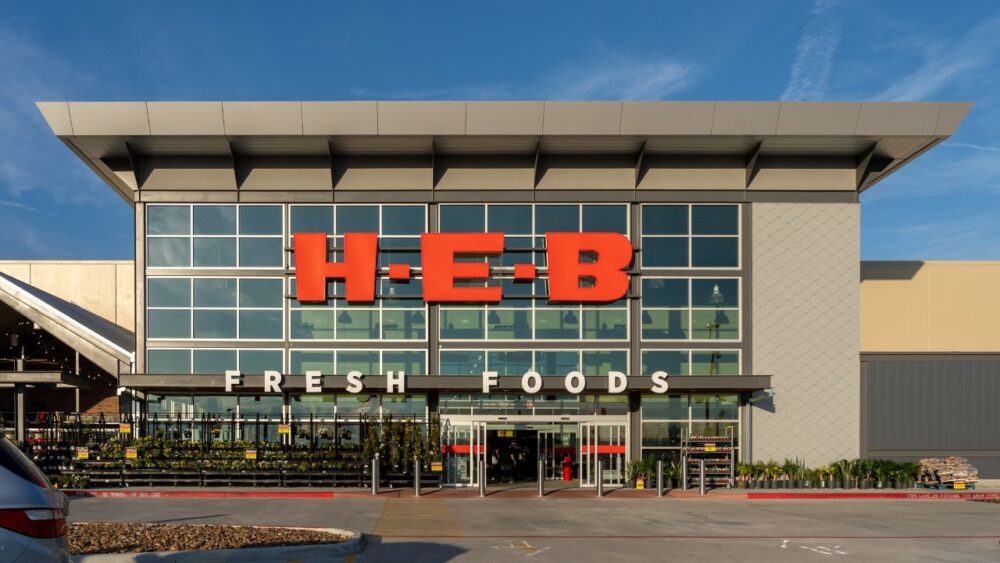San Antonio-based grocery giant H-E-B is doubling down on its North Texas expansion with a $20 million investment in a 139,000-square-foot distribution hub in Fort Worth, part of its most ambitious growth push in decades.
The investment underscores H-E-B’s bid to capture market share in one of the nation’s most competitive grocery markets, long dominated by Walmart, Kroger, and Tom Thumb.
Alongside new store openings, H-E-B has filed plans for “Project Roadrunner,” a warehouse and storage facility in south Fort Worth. According to state filings, the $20 million project will occupy 6900 AWG Way in an established industrial corridor.
“This is a general warehouse and storage space to support expansion across North Texas,” said Mabrie Jackson, managing director of public affairs for H-E-B, in an email.
Project Roadrunner is listed as a “First Generation Tenant Finish” in filings with the Texas Department of Licensing and Regulation. The location places H-E-B alongside existing distribution centers for HomeGoods, Daikin, and Ashley Furniture.
The new warehouse supports H-E-B’s recent wave of store openings in Frisco, the Fort Worth Alliance area, Prosper, Mansfield, and north Fort Worth. These stores mark the grocer’s most aggressive North Texas push yet.
As previously reported by The Dallas Express, H-E-B has continued acquiring land across North Texas to support future growth. The land deals highlight the company’s long-term expansion strategy, not just a short-term wave of stores and warehouses.
Construction on the facility began this month. The site leverages existing DFW infrastructure, with analysts noting the investment will help H-E-B maintain fresh product offerings and competitive pricing while it scales into new markets.
The new distribution center strengthens delivery capabilities and meets rising demand as more stores open. Executives describe the broader logistics plan as H-E-B’s most significant geographic expansion in decades.
Overall, H-E-B’s North Texas expansion continues to draw attention in retail circles. The grocer’s loyal following and distinctive product mix pose a serious challenge to entrenched national chains.


